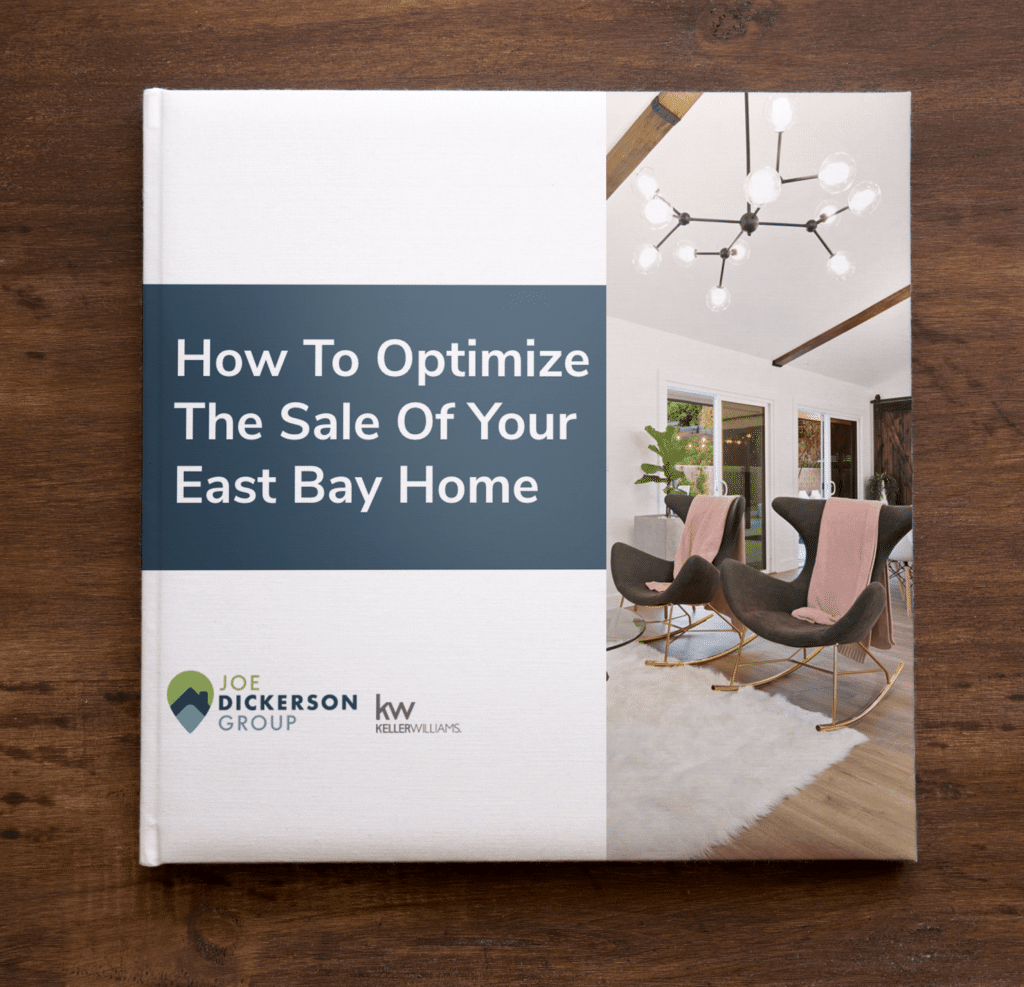Recently, my wife and I were faced with the decision of whether to continue renting out our duplex in Oakland, or to sell and invest the proceeds elsewhere. It was an incredibly tough decision, but we’re very happy with how things ultimately panned out.
In this article, I will share with you five important things to consider when deciding whether to sell or rent out your home in Oakland or the Bay Area. I’ll also share with you the story of how we ultimately came to our decision, and where we’re headed next.
But first, before we get into that, I urge you to speak with your accountant or financial planner before making any big decisions.
They will be able to help you determine if keeping the home to rent to a tenant is a sound financial move – whether or not is will produce positive cash flow. If it won’t, and you’ll be looking at a loss every month, consider selling the home.
Here are the main things to consider when deciding whether to sell or rent out your home in Oakland or the Bay Area:
- Condition of the home
- Being a landlord
- Risk tolerance
- Taxes
- Return on equity
#1 – Condition of the home
Selling a home as-is isn’t quite as easy as you may think, especially in the Bay Area’s competitive landscape. If there are significant problems, a buyer’s lender may require them to be remedied before proceeding with the loan.
Even smaller problems may cause a significant reduction in the selling price and a lengthier sale process.
Tenants, on the other hand, are far more likely to overlook a home’s flaws than a potential buyer.
If you don’t have the funds to make repairs, renting the house out may be the best option, provided your financial counselor agrees that all other considerations point to renting as well.
This was an area where my wife and I actually fumbled a bit, mostly because of our indecision.
When our tenants moved out earlier this year, we were faced with the decision of whether to do a quick turnover of the unit and rent it out to new tenants (since demand for housing in Oakland is so high, we knew we’d have no problems finding a new tenant), or invest more money into sprucing up the place in order to list it for sale.
At first, we decided to stay the course. We were getting good returns, we reasoned, so let’s not rock the boat. Let’s do a quick turnover, then get new tenants in there.
After the turnover was complete, we started to look more holistically at our home, as well as the Bay Area real estate market, as compared with the rest of the country. Ultimately, we decided to sell (more on that in a moment), so we invested several thousand dollars into getting the property ready for market.
Trust me, this part is no easy feat. Investing thousands of dollars into making the place nicer, when you’re not even going to be living there, can be tough.
But we knew that it would be an investment, and that ultimately, we’d achieve a much better sale price, so we went ahead and did everything we could to get our home ready for market.
#2 – Being a landlord
If your home is in pristine condition and you have even a small emotional attachment to it, you may not want to rent it out. Tenants are notorious for not caring for homes as a homeowner does, allowing problems to fester without notifying the owner, causing additional damage.
Let’s face it, the mere act of living in a home can cause damage, from scuffed baseboards to burnt countertops and dead plants. If the thought of any of this damage breaks your heart, perhaps you should reconsider becoming a landlord.
Trust me, this part is not easy. Most of our rentals started out as house hacks, meaning we started out by living in one unit and renting out the other. This led to an emotional attachment to the home. We took pride in keeping the hardwoods nice, the landscaping neat, and all the appliances is good working condition.
When we would rent out our units, it was always painful to return and see the condition that the tenants left the units in. It wasn’t always terrible, but more often than not, our tenants were not taking care of the home as we would.
In addition, there is the routine home maintenance that you’ll be on the hook to perform, despite not living in the house.
Guess who pays for the plumbing bill when the tenant’s child tries to flush his toys down the toilet? Yup, you guessed it. You get the bill. And not only that, you have to invest the time in finding that plumber and arranging the appointment.
If the roof leaks, the refrigerator dies or the HVAC unit needs repair, the onus is on you to set things right. If you lack the energy, desire or the funds to make repairs or replacements, landlording may not be for you.
#3 – Your tolerance for risk
Becoming a landlord is a risky endeavor. What will you do if the rent is late or if it isn’t paid at all? Will you have the money to make the house payment?
Will you have the time and money to spend on protracted and stressful eviction proceedings? If not, you either shouldn’t become a landlord, or find the extra money to pay a professional property manager.
Being a landlord can be a profitable investment. However, investing in a rental isn’t like investing in stocks. When you invest in the stock market, you click a button to buy a stock, and then your job is largely done.
However, being a landlord comes with lots of responsibilities and risks. You have to abide by tenant and landlord laws, which can be especially tricky in a tenant-friendly market like the San Francisco Bay Area.
For example, there are many hoops to jump through if you were to raise the rent. Because of rent control, there are strict limits on how much, and when, you can raise the rent.
If risk is something that makes you uncomfortable, it may be better to sell your home, rather than to rent it out.
#4 – State and federal income taxes
I’m not a CPA, so, again, I urge you to contact yours. Taxes are complicated and become even more so when you own an investment property.
I do know that there are many tax deductions for investment property owners, from being able to write off the interest associated with the mortgage to depreciation.
In addition, the cost of repairs to rental property (provided the repairs are ordinary, necessary, and reasonable in amount) are fully deductible in the year in which they are incurred.
For our rentals, these tax write-offs have been a huge benefit to investing in real estate. In most cases, even though our properties are cash flow positive, the depreciation and other write-offs show, on paper, that we’re actually losing money.
This has allowed us to offset our overall tax bill, and this is one of the huge reasons that many people choose to invest in real estate.
#5 – Return on equity
For us, ultimately, there was one key factor that led to our decision to sell, rather than continuing renting out our duplex, and that key factor was return on equity. Let me explain.
Most investors focus on a different metric: return on investment. That’s the profit you’re getting, as compared to what you originally put in.
In our case, we’d put in a $100,000 down payment on a $500,000 home, and our duplex was generating a cash-on-cash return of $18,000 per year. That meant that our return on investment was 18% ($18k of $100k is 18%). Seems pretty good, right?
However, in the rapidly appreciating San Francisco Bay Area market, it’s much more relevant to consider return on equity.
To put it in simple terms, equity is the amount of money you’d receive if you were to sell your home today.
In our case, we estimated, based on comps in the area, that our duplex would sell for around $800,000. We’d purchased the home for $500,000, with $100,000. With a value around $800,000, our equity was roughly $400,000 ($800k minus the $500k purchase price, plus the $100k down payment).
When you compare the $18,000 of cash-on-cash returns we were generating each year with the $400,000 of equity, our return on equity was just 4.5%. Not nearly as strong of an investment as the 18% return on investment would have led us to believe.
Because we knew that we would be able to achieve 10%+ cash-on-cash returns if we were to invest that $400,000 into another property, and especially if that property were in another market, we decided to sell.
Return on equity was the metric that ultimately put us over the edge.
Conclusion
As you already know, the San Francisco Bay Area real estate market is extremely hot, and homes are routinely selling for well above asking price. There is also incredible demand for rental housing, so many people are able to rent out their homes and achieve some cash flow each month.
When deciding whether to sell your home or rent it out, consider these key factors:
- Condition of the home
- Being a landlord
- Risk tolerance
- Taxes
- Return on equity
For us, we were able to sell our duplex for above asking price, and within a short timeframe. We chose to invest the roughly $400,000 of proceeds into a growing market outside the state of California, in a much more landlord-friendly market.
While I can’t tell you whether or not selling is the right decision for you, I can tell you that, if you sell your home, you’ll be taking advantage of one of the best seller’s markets in history. You’ll no doubt be pleasantly surprised when you learn how much your home might be worth right now.
If you’d like to chat further about your options, and whether selling or renting out your home is the right move, schedule a call with me. I absolutely love talking with people about this stuff.



